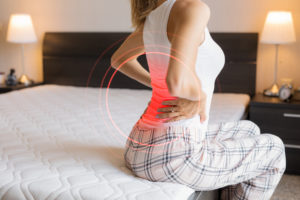 With COVID-19 going around, it can be easy to overlook bone health. It’s probably not even in your top five concerns at the moment. But if you’ve got a handle on indigestion, sleep, and mood, it might be time to give your bones some attention.
With COVID-19 going around, it can be easy to overlook bone health. It’s probably not even in your top five concerns at the moment. But if you’ve got a handle on indigestion, sleep, and mood, it might be time to give your bones some attention.
Strong, healthy bones keep you standing and moving. They help you stay balanced and durable and can limit the risk for dangerous falls and fractures. In lockdown, it can be pretty easy to forget about your bones, but they are certainly being impacted.
Advertisement
Plenty of sitting, little exercise, a lack of sunlight, and dietary choices could all cause bones to weaken. To counteract those risk factors, here are a few things to do:
- Eat plenty of fruits and vegetables: Fresh, frozen, or canned produce are rich in a number of nutrients that benefit bone health. Vitamin C can help produce cells that form bones while magnesium helps preserve bone.
- Enjoy vitamin D with your calcium: Calcium can’t be absorbed without enough vitamin D. If you’re eating dairy, broccoli, and other calcium-rich items, spend some time outdoors in the sun for your vitamin D.
- Do some strength training: Lifting some weights, doing step-ups, or other strength movements can also promote strong bones. Select weights that allow you to perform two or three sets of 8-12 repetitions.
- Load-bearing movements: If you don’t have a diagnosed condition like osteopenia or osteoporosis, weight-bearing, high-impact activities like running, dancing, or stair climbing can all help build stronger bones.
- Limit alcohol consumption: Bone mineral loss is closely associated with heavy alcohol intake. Sticking to one (women) or two (men) standard-sized drinks per day (at most) may help promote healthier bones.
Give your bones some love during the lockdown. Make some time every day to ensure they stay strong and healthy.
